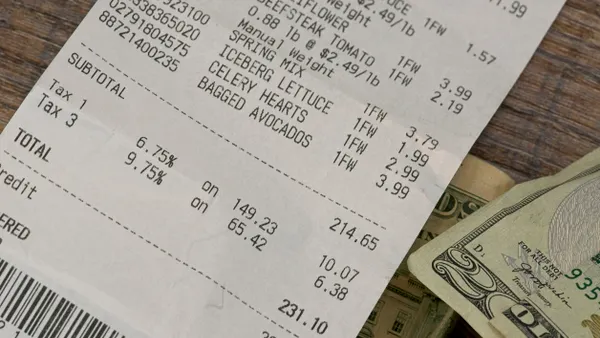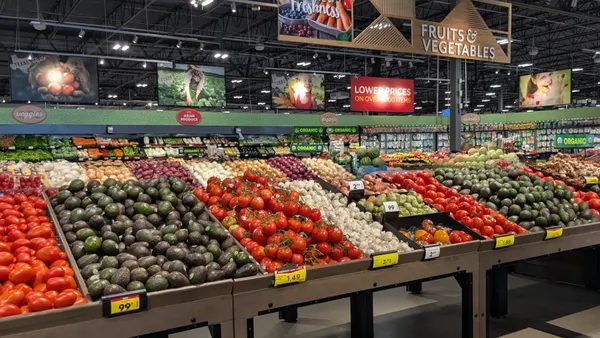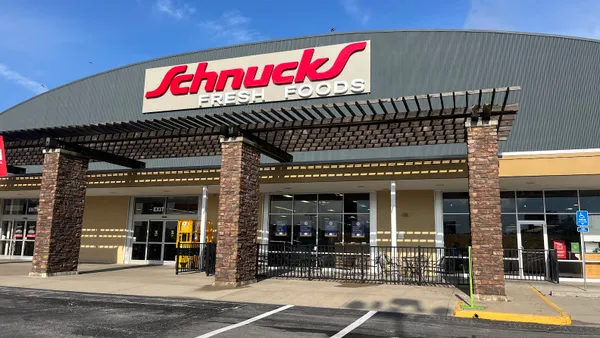Dive Brief:
- Ahold Delhaize has secured a €1 billion ($1.2 billion) revolving credit facility linked to its sustainability objectives, the company announced in a press release on Friday.
- The line of credit, which is the result of a refinancing of the retailer’s 2015-dated existing facility, enables Ahold Delhaize to tie its costs of borrowing with its progress on food waste reduction, carbon emission reduction and promotion of healthy eating among its customers.
- Sustainability-linked loans, where the loan’s interest rates are cut if the borrower meets their set targets, are becoming increasingly mainstream. A revolving loan also will provide greater flexibility to Ahold Delhaize in repayments or re-borrowing as it does not involve a fixed payment schedule.
Dive Insight:
Ahold Delhaize said it plans to annually report on the progress of the new sustainability goals linked to the revolving credit facility, furthering the grocery company's food waste reduction and carbon emissions targets.
Its previously announced initiatives include investments in renewable energy, improvements to energy efficiency and becoming the first retailer to issue a euro-dominated sustainability bond. Ahold Delhaize has also said it plans to cut both food waste and carbon emissions in half by 2030. As for its private label, the food retailer has pledged to eliminate plastic waste from its own-brand packaging in the next five years and cut out "chemicals of concern" from its products.
Its carbon emissions pledge is ambitious compared to its competitors: Kroger’s goal is to reduce greenhouse gas emissions by 30% by 2030, and Walmart’s public target is an 18% reduction between 2015 and 2025.
Analysts have noted that Ahold Delhaize’s entrance into sustainability bonds and a sustainability-linked facility reflects a shift in the types of firms taking the lead in the market, with retail and telecommunications companies boosting the sustainable bond market.
Financial services and investment bank Morgan Stanley estimated last year that demand for green bonds will only accelerate — as bonds are a key mechanism used to finance sustainable projects — and predicted that $90 trillion will be needed for the next 15 years for global infrastructure investment for a successful transition to a “lower-carbon scenario.”









